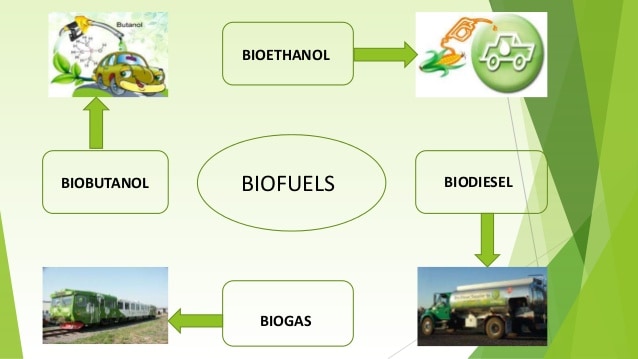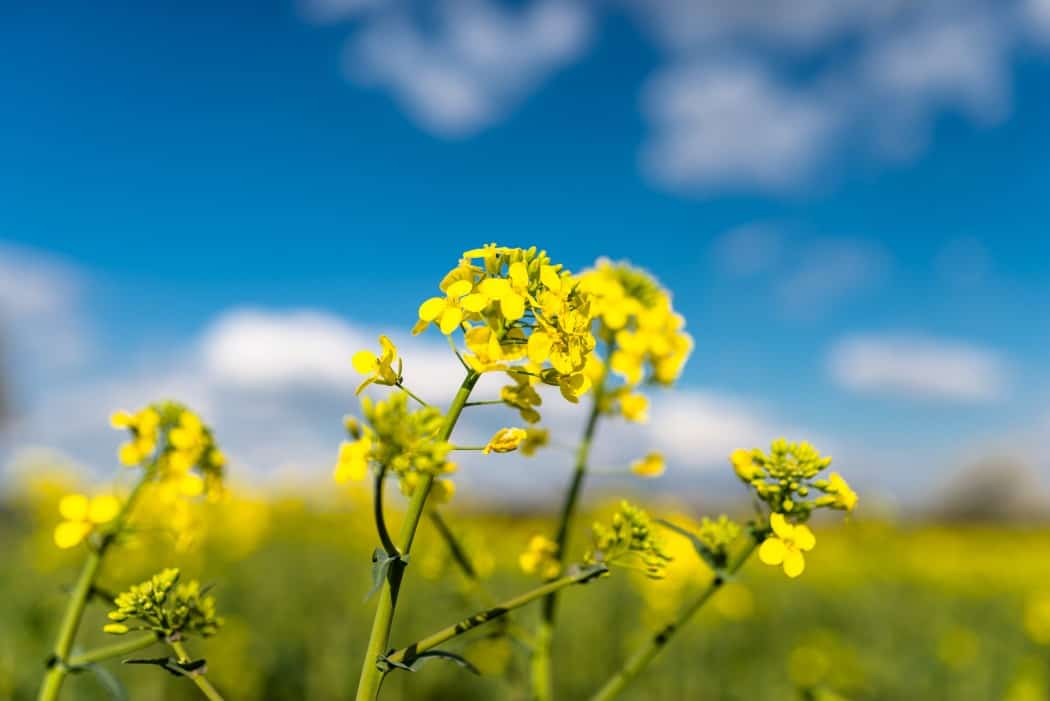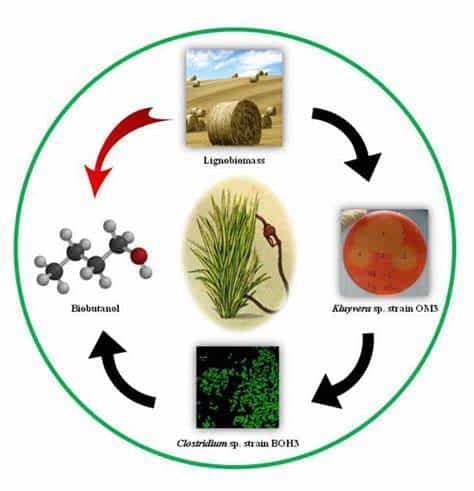With fossil fuels and non-renewable energy sources burning up, we have no choice but to come up with methods to generate power in a whole new way. We have to resort to methods that are not only natural but will not pollute the planet even further. As we have left not so many energy sources for our future generations, we must make sure to develop new methods so that it gets a little easier for them too. One of the best ways to generate power in today’s time is to utilize the energy that we living beings have inside us. The complex chemical processes that keep happening inside us, even after we die, are signals that a lot of energy is being wasted, which could be put to some good use.
What Are Biofuels?
According to biofuels’ definition, when an animal or plant dies, their remains can be used as fuel very easily. In the agriculture sector, every now and then, a lot of organic matter gets wasted and becomes a part of the soil. However, if we use these remains properly, we would be able to create energy in a considerable amount. Since plants and animals will never seize to die, the source of biofuels will never be stopped. In simple words, a dead animal or plant is converted into oil through chemical or natural processes, and this oil is called biofuel.
Types of Biofuels
In total, there are three types of biofuels, namely, Ethanol, Biobutanol, and Biodiesel. These three biofuels are generated through different processes by using animals and plants as their primary ingredient.

Ethanol

Ethanol is referred to as the purest form of alcohol, which is also consumed by us in hard liquor. Ethanol is a very important biofuel whose usage has been recently discovered for various purposes. It has been growing popularity for its effective utilization in car tanks and would be able to replace petroleum soon.
Currently, it is being used along with petrol and diesel in automobiles. This biofuel can be produced by using sugarcane and corn in most cases.
One of the best advantages of using ethanol along with diesel or petrol is that no changes have to be made in the engine of cars if ten percent of ethanol has been used. Currently, the governments of many countries are allowing even more significant amounts of ethanol to be used.
Biodiesel

Biodiesel is one of the best replacements for petrol and diesel and works excellent in replacing the two. It is extracted from animal oils and plant oils. The best part is that most companies do not even have to manufacture animal and plant oils; they simply get it from restaurants and hotels. They utilize the used vegetable and animal fats and produce biodiesel out of this.
In recent studies, scientists have found ways to create microorganisms, such as algae, and bacteria that can reproduce and generate oils on their own. These organisms will carry out the process of generating biodiesel in their bodies using sources such as the sun or even CO2 and break molecules to produce oils.
Biobutanol

It is not a very popular type of biofuel as studies over it are still going on. However, this fuel seems to be the most promising. It is isobutanol, which is extracted from algae and bacteria.
The process works the exact same way it did in the case of biodiesel. The advantage of using biobutanol instead of other fuels is that you don’t have to modify the engine or the fuel way to make it work for automobiles. Once the studies are completed regarding this fuel, and efficient ways to utilize it are identified, it is sure to gain immense popularity.
Pros and Cons of Biofuels
Biofuels do seem like a very promising and advantageous invention. They have a lot of potential uses and can help us in a million different ways. However, to understand biofuels and their energy generation, it is essential to analyze advantages as well as their limitations. To help you in the process, below mentioned are some pros and cons of biofuels, which could provide us more knowledge about them.

Biofuel Pros
Cheap
Most renewable energy sources such as solar power, wind, etc. are not very affordable to a common man. If we consider the advantages in the long run, they might turn profitable.
Biofuels, however, are things that have several uses and are quite cheap when compared with other energy sources. You don’t have to wait for months or years for them to provide you some profit. The cost of the generation of biofuels is low, and you will save on petrol and diesel as well.
Eco-friendly
For an energy source to be useful, it is crucial for it to be environment-friendly. We cannot expect to save our planet by using renewable resources but polluting the atmosphere at the same time. Biofuels works fine in this case as they do not add on to the carbon dioxide emissions and do not emit toxins in the air.
This helps us in lowering down air pollution and water pollution to a very great extent. People will not only save on money but will get health benefits as well.
Local production
One of the best reasons to use biofuels is that you don’t have to set up a complete factory to generate this fuel, and you don’t have to depend on being in a country that allows it. Biofuels can be easily be produced and provide reasonable amounts of value. This is possible because the primary ingredients that are required to generate biofuels are found everywhere.
Helps in the economy
Since no country has to be dependent on other countries for the production of biofuels, the economy rallies up for them. They can replace petrol and diesel by biofuels and sell it at the same price or even lower rates. This has helped many countries in their economic status, especially the ones who were in no state of paying vast amounts of money to first world countries.
Biofuel Cons
Lead to industrial pollution
When biofuels are put to use, they do not emit high carbon gases and are quite eco-friendly. However, when biofuels are being generated, the machines that are used in the process emit vast amounts of carbon dioxide and other harmful gases into the atmosphere. The method of cultivating such high amounts of plants takes in a lot of water and other resources. To increase the primary ingredients for the generation of biofuels, many turn to pesticides, chemicals, etc. and this adds to the pollution.
Conversion of land
To meet the demands of both consumers and producers, the number of ingredients that are required increases. To cater to this, land that is used for different purposes has to be converted into agricultural land so that more and more crops are grown and are utilized as raw materials for fuel generation.
A minimal amount of open space has been spared on the surface of the earth, and such a significant requirement for production may harm the land.
High prices of crops
Due to the high demand for the production of plants and animals for biofuels, the fulfillment of requests from the consumers cannot be adequately met. Farmers are forced to grow some type of crops all year long so that they can generate more and more capital for their personal needs.
Factories that participate in energy generation of fossil fuels tend to offer high prices to farmers so that they grow crops according to their needs. This would lead to a low amount of foods in the market, and thus the prices would rise high with the demands.
High capital for investment
Biofuels generation does sound like a very promising idea in the first place. It provides a good profit throughout the year; it is easy to generate and doesn’t involve any international or brand complications.
However, one of the most concerning fact about biofuel generation is its initial investment. The capital required to set up an entire factory that has all the necessary machinery for energy generation is high, and very few can manage the continuous money flowing outwards.
Uses of Biofuels
There are various vital uses of energy generation that have become popular in the present world, some of which are mentioned below:
Transporting
Biofuels are a significant help in the transportation department as they have made petrol and diesel a bit less expensive. By using biofuels in our cars, buses, etc. we get to save our money and the precious fossil fuels that might get eradicated from the planet if no steps are taken for the same.
There are other fuels such as solar power, electricity, etc., that can be used for transportation as well. Still, biofuels work to be the best replacement for petrol and diesel due to their chemical composition.
Power generation
Biofuels are not just great to be used as fuels for automobiles; they can also be used for generating electricity and power for power backup systems.
Many factories, group housings, etc. use biofuels as power backup energy sources to use in generators and invertors. Hospitals and schools are using this energy source on a vast scale these days and can save on money and reduce their carbon footprint as well.
Heat generation
Biofuels come very handily in the winter months or places that have a cold climate in general. Biofuels can generate heat and gases that provide warmth.
All you have to do is connect your house or building through pipelines to any nearby biofuel power plant or power provider. A homemade solution to heat your home is by using wooden logs. When noticed carefully, houses that use wooden logs instead of electricity to warm up their place tend to feel more cozy and relaxed. The temperature rises quickly and stays the way for a long time.
Charging of gadgets
According to scientists, biofuels can provide a good amount of energy for several purposes. If biofuels can be produced into cells that can be either refilled or charged in some way, they would be able to provide power to a lot of gadgets just like a standard battery or a charger behaves. These cells could be either used for mobile phones, car batteries, remote controls, etc.
Cooking
When cooking over a stove or lanterns, the key ingredient that we use is kerosene. Kerosene usage has many side effects, and it is dangerous if used by amateurs.
Therefore, biofuels can be used as a replacement for kerosene. They work just as fine and have some advantages as well.
History of Biofuels
Biofuels may seem like a very modern idea of energy generation, but this is so not the case. Biofuels have been used since the earliest times when people were struggling to find a source of light and heat and invented fire.

Wooden logs are a perfect example of a natural source of biofuels. This source of energy has been in use way before fossil fuels came into play.
Countries started using this source of energy for various purposes, and in the current times, even liquid biofuels are being put to use.
Final Words
Undoubtedly, biofuels are an excellent replacement for fossil fuels and other non-renewable energy sources that we have been using to date. With so many advantages to promise, this source of energy would be great to work with for years to come. The limitations that come along with it can be worked upon to make sure we generate the best fuels for our usage. The future of biofuels is bright and very promising. They are expected to take over the most popular fuels in no time and change the way we look at them.
Premium paid images via Twenty20